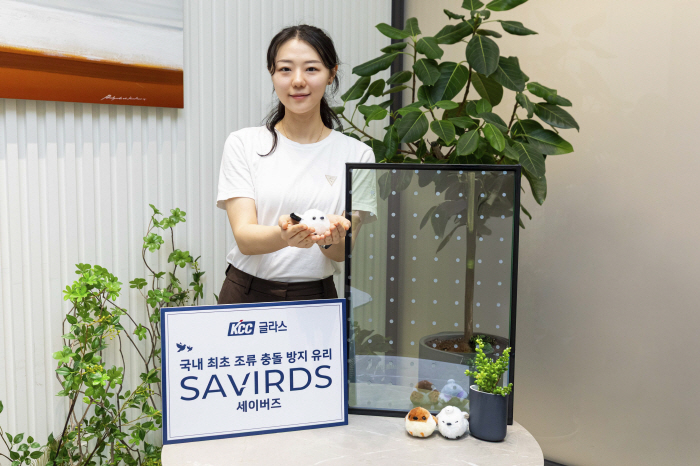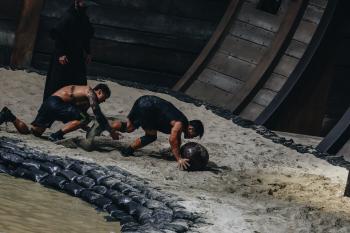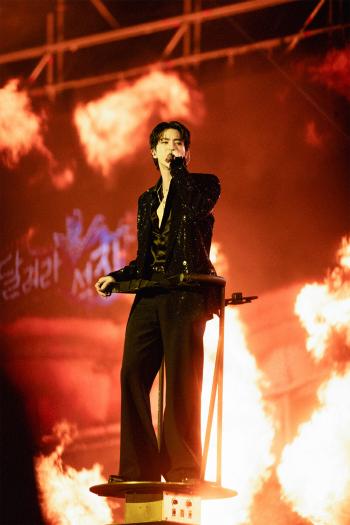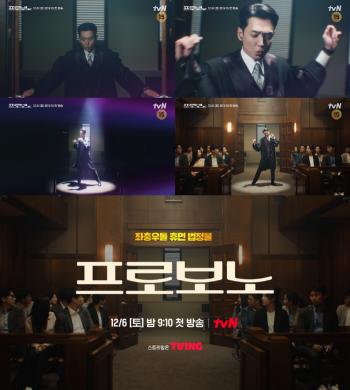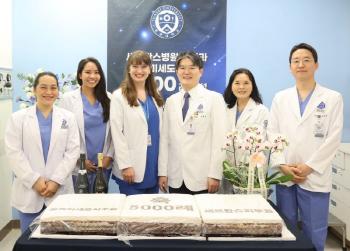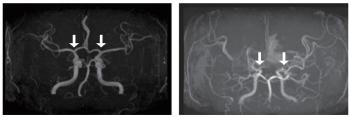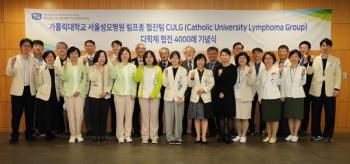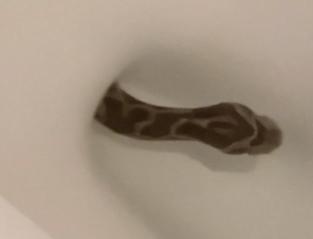KCC Glass Launches Anti-Bird Collision Glass Savers (SAVIRDS) to Protect Birds' Life
Nov 06, 2025
KCC Glass will launch the first glass "SAVIRDS" with bird collision prevention function in Korea and respond to biodiversity conservation and eco-friendly construction demand.
Sabres is a product with a pattern engraved on the surface of glass to prevent the collision of algae using a special 'Sand Blasting' technique. An 8-mm circular pattern carved 5 cm by 5 cm apart prevents collisions by allowing the algae to recognize it as an obstacle that cannot pass through the glass.
In fact, Savers was the first domestic glass product to be certified by the association to reduce bird collisions by meeting the above-standard requirements in the test conducted by the American Bird Conservation Association (ABC).
KCC Glass's launch of Savers is a response to the growing seriousness of wild bird damage caused by glass and strengthening related laws and regulations. According to a report submitted by the National Institute of Ecology to the Ministry of Environment in 2019, about 8 million birds per year collide with building glass and soundproof walls and die in Korea. Accordingly, the government revised the 「Wildlife Protection and Management Act" in 2022 and mandated public institution buildings to take measures to reduce wildlife damage.
Currently, it is common to attach a bird collision prevention film or a bird collision prevention sticker to glass, but it has been pointed out that it is not effective due to durability limitations such as discoloration or fall due to external factors such as ultraviolet rays.
In contrast, Savers can maintain the pattern semi-permanently by engraving the pattern on the glass itself, as well as cut and processing the same as general glass without restrictions. In particular, a Low-E coating (silver coating to increase the insulation performance of glass) can be applied to the opposite side of the pattern to secure high insulation performance, protecting wild birds and saving energy in buildings.
KCC Glass plans to actively promote the strengths of Savers launched this time and gradually expand the scope of its application to general buildings, starting with public institution buildings.
"Savers is a technology-based ESG glass product aimed at preserving biodiversity and responding to the demand for eco-friendly construction," a KCC Glass official said. "As a representative company in the domestic glass industry, we will commercialize our products and promote consumer awareness of the protection of wild birds."
Meanwhile, KCC Glass is also operating a biodiversity conservation campaign to protect wild birds 'Save Seas (鳥) KCC Glass'. Through this, general glass is installed along with the National Institute of Ecology, attaching bird collision prevention stickers to buildings that are highly likely to collide with wild birds, and a talk concert is also being held to announce the importance of protecting wild birds. Last year, bird collision prevention stickers were attached to Gwangjin-gu 'Achasan Forest Library' and Seongdong-gu 'Seongdong-gu Maebong Forest Library' and two more buildings with a high risk of collision will be selected this year to continue related activities.
Sabres is a product with a pattern engraved on the surface of glass to prevent the collision of algae using a special 'Sand Blasting' technique. An 8-mm circular pattern carved 5 cm by 5 cm apart prevents collisions by allowing the algae to recognize it as an obstacle that cannot pass through the glass.
In fact, Savers was the first domestic glass product to be certified by the association to reduce bird collisions by meeting the above-standard requirements in the test conducted by the American Bird Conservation Association (ABC).
KCC Glass's launch of Savers is a response to the growing seriousness of wild bird damage caused by glass and strengthening related laws and regulations. According to a report submitted by the National Institute of Ecology to the Ministry of Environment in 2019, about 8 million birds per year collide with building glass and soundproof walls and die in Korea. Accordingly, the government revised the 「Wildlife Protection and Management Act" in 2022 and mandated public institution buildings to take measures to reduce wildlife damage.
Currently, it is common to attach a bird collision prevention film or a bird collision prevention sticker to glass, but it has been pointed out that it is not effective due to durability limitations such as discoloration or fall due to external factors such as ultraviolet rays.
In contrast, Savers can maintain the pattern semi-permanently by engraving the pattern on the glass itself, as well as cut and processing the same as general glass without restrictions. In particular, a Low-E coating (silver coating to increase the insulation performance of glass) can be applied to the opposite side of the pattern to secure high insulation performance, protecting wild birds and saving energy in buildings.
KCC Glass plans to actively promote the strengths of Savers launched this time and gradually expand the scope of its application to general buildings, starting with public institution buildings.
"Savers is a technology-based ESG glass product aimed at preserving biodiversity and responding to the demand for eco-friendly construction," a KCC Glass official said. "As a representative company in the domestic glass industry, we will commercialize our products and promote consumer awareness of the protection of wild birds."
Meanwhile, KCC Glass is also operating a biodiversity conservation campaign to protect wild birds 'Save Seas (鳥) KCC Glass'. Through this, general glass is installed along with the National Institute of Ecology, attaching bird collision prevention stickers to buildings that are highly likely to collide with wild birds, and a talk concert is also being held to announce the importance of protecting wild birds. Last year, bird collision prevention stickers were attached to Gwangjin-gu 'Achasan Forest Library' and Seongdong-gu 'Seongdong-gu Maebong Forest Library' and two more buildings with a high risk of collision will be selected this year to continue related activities.
|
This article was translated by Naver AI translator.
